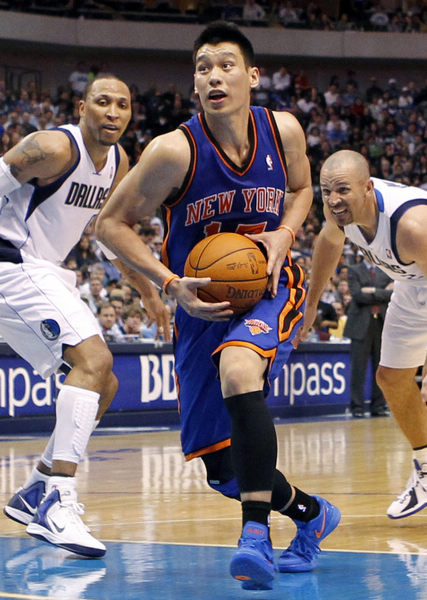Students may get sporting chance
Updated: 2012-03-09 08:08
By Tang Yue (China Daily)
|
|||||||||||
Next big thing
Deng, 39, was the best table tennis player of her generation. She also holds a doctorate from Cambridge University, one of the world's most prestigious colleges. Yet, it was only after she retired in 1997 that she entered full-time education, which began with her learning English alphabet.
Likewise, Yao Ming, the NBA All-Star, only enrolled at Shanghai Jiao Tong University last year at the age of 31, four months after announcing his retirement from basketball.
Such stories are rare for Chinese sportsmen and women, however, which is one of the reasons why teenagers and parents are increasingly reluctant to put more emphasis on physical education.
At 2.07 meters tall and having good flexibility, Guo Jian has shown great potential as a center, the position Yao Ming played. The 16-year-old was spotted by top coach Li Qiu-ping during a summer camp four years ago and soon left his hometown in Northeast China's Heilongjiang province to train in Shanghai.
Despite the lure of possibly becoming the next big thing, Guo quit after just a year.
"I was a top student at primary school, but the middle school in Shanghai was just so-so," he said. Although he could have been in the junior squad of the Shanghai club where Yao used to play within a year or two, it would have meant less time in the classroom. "It was too much of a sacrifice," he said.
His mother, Dong Yan, who is a teacher, said she fully supported the decision. "Families can only have one child in China what if he didn't succeed in basketball?" she said. "Even if he did, he can't play that game all his life."
Training techniques
As sports academies are losing their appeal among youngsters, the question is whether sporting potential can instead be developed at ordinary schools.
After leaving Shanghai, Guo was enrolled at a high school affiliated to Tsinghua University in Beijing. His decision came down to two things: Its basketball team is a five-time national champion and its students have a good record of success in the gaokao, or national college entrance examination.
The school has arguably the best conditions for teenage basketball players. Head coach Zhang Tao was a top scorer in the Chinese Basketball Association and a former national team player, while facilities include an indoor court and a fitness center. Sponsors even supply the school with kits and sneakers.
Yet, it is another story when it comes to less-developed areas.
Qiao Yapei, who teaches physical education at a middle school in Xingtai, Hebei province, said he has seen about 50 children playing under one hoop in a nearby village.
Tsinghua high school player Liu Lei, 17, who hails from Baoding in Hebei province, also said he had never seen an exercise machine before arriving in Beijing. His team has for the last four years traveled to Hawaii for an annual invitational tournament. Guo said he was impressed that squads there had at least five coaches, each in charge of a specific position. "I couldn't stop running when I stepped onto the court in Hawaii," he said.
That gulf in training techniques goes some way to explaining why most of China's exports to the NBA have been centers usually tall and strong, like Yao Ming and Yi Jianlian at the Dallas Mavericks rather than point guards like Jeremy Lin who dictate their team's offensive play.
|
 |
|
New York Knicks guard Jeremy Lin, who has a degree in economics from Harvard, in action against the Dallas Mavericks on March 6. Mike Stone / Reuters |
"In basketball circles, we say it takes three years to develop a good center but more than a decade to develop a mature point guard," said head coach Zhang, who explained that point guards need to be strong and have a comprehensive understanding of the game.
"It has to be very systematic and consistent process," he said. "We have fallen behind (the US) a few inches with every step, which has added up to a huge distance."
Matthew Webb, head of sport at Tsinghua high school's international department, said: "Good players must be independent thinkers, especially point guards. They need to learn from making mistakes, but Chinese teachers and coaches don't encourage enough when they make mistakes."
Today's Top News
President Xi confident in recovery from quake
H7N9 update: 104 cases, 21 deaths
Telecom workers restore links
Coal mine blast kills 18 in Jilin
Intl scholarship puts China on the map
More bird flu patients discharged
Gold loses sheen, but still a safe bet
US 'turns blind eye to human rights'
Hot Topics
Lunar probe , China growth forecasts, Emission rules get tougher, China seen through 'colored lens', International board,
Editor's Picks

|

|

|

|

|

|





